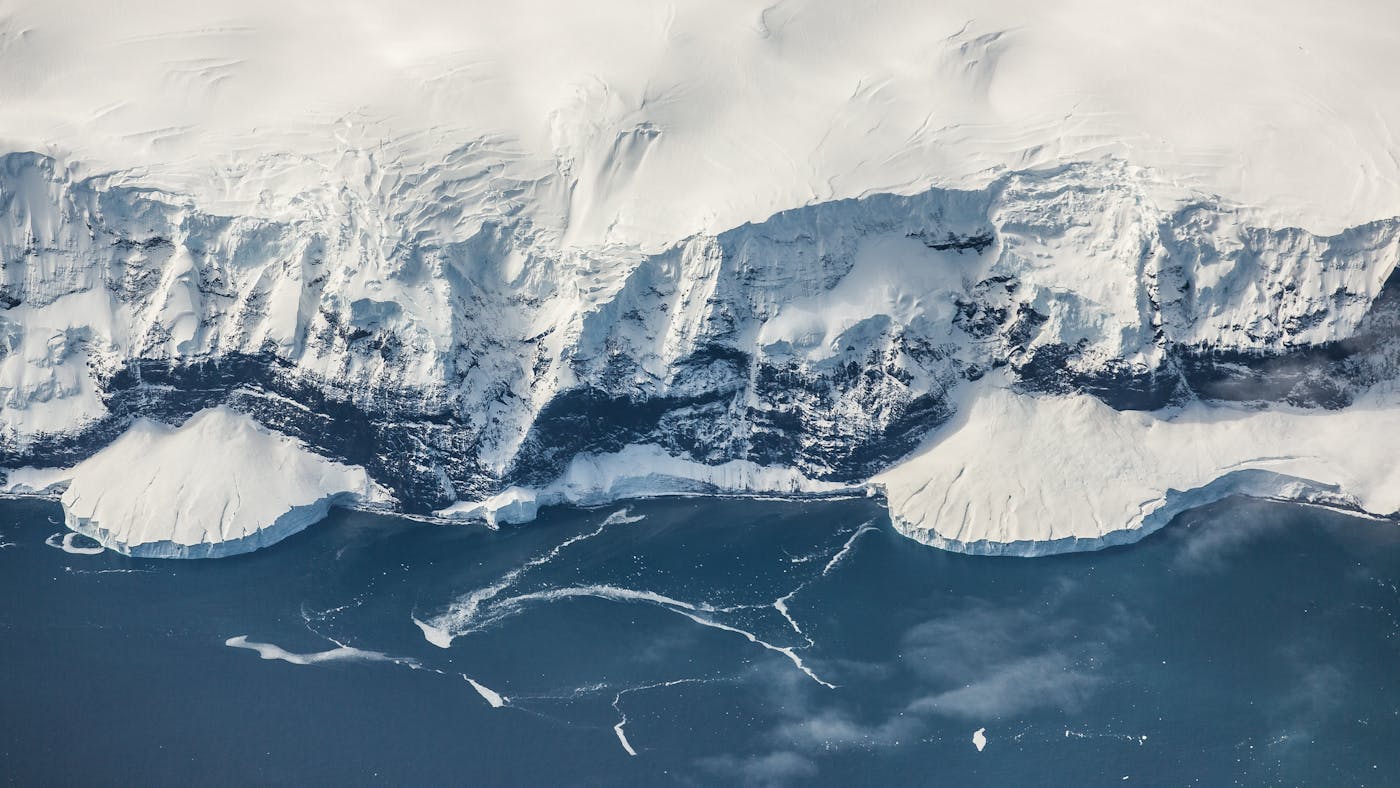Get Them Out Alive
Why We Go Where No One Has Gone

Less than a century before the Internet made even petty stories viral, a man with a bombastic kind of bravery led a team into impossible territory to do the impossible. As international conflict erupted into World War I, Irishman Sir Ernest Shackleton led a strategically chosen team of 26 men (plus one ill-fortuned stowaway) from the British Isles to what is still the least-traversed, seen, or occupied continent in all the world.
Back then, Antarctica would have been all the less forgiving when its topography was still entirely unknown to mankind. Yet 28 men sailed straight for her, obsessed with the mystery and allure of the frontier. They had to go where no one had gone before and attempt what no one else had ever done. Shackleton had lost the race to reach Antarctica some years earlier and instead resolved to secure his legacy by being the first to lead an expedition across her unforgiving terrain by foot.
Fortitudine Vincimus
Such a task demanded a kind of fortitude from these men that they would need to forge along the way. As with any frontier expedition, it is impossible to plan and difficult to prepare for it. The frontier confronts its foreigners with what they didn’t know they didn’t know once they get there and try to work their way through it. Shackleton’s men and mission learned this quickly.
Due to unseasonable and unexpected cold, the waters around the South Pole began to freeze early. Shackleton’s ship — aptly named Endurance, after his family motto, Fortitudine vincimus (“by endurance we conquer”) — became trapped before they reached their point of anchor. Months passed on this floating grave before the frozen trap would release the vessel.
The men would stand on their prized continent only long enough to figure out how to leave her. Their expedition immediately became a struggle for survival. Shackleton’s legacy would be etched into the walls of history not for exploratory bravado, but because he fought every devil in the South Pole to get every one of his men back home alive.
And he did.
The miracle of their incredible survival attests to us three distinct and beautiful priorities disciples of Jesus are meant to have: go to the frontier, endure whatever you find when you get there, and get as many as you can out alive.
Go to the Frontier
Our lifelong process of discipleship is more like Shackleton’s story than we realize. We will not find ourselves on ice-locked ships counting down the days until the crushing blow; we will not find ourselves stuck on the other side of the world, at the mercy of stars and dingy rowboats to find our way back home.
But in this “present evil age” (Galatians 1:4), we will find ourselves, for a myriad of other reasons, in “need of endurance” (Hebrews 10:36) until our Bridegroom comes (Matthew 25:1–13; Revelation 19:7) — and we are commanded and commissioned to get feet on ground they’ve never been before to declare a name no one there has ever heard before and make disciples of the man to whom all knees will bow (Matthew 28:19–20; Acts 1:6–8; Romans 15:20; Philippians 2:9–11).
So we too must go to the frontier, endure whatever we find when we arrive, and do everything we can to get as many people as we can out alive.
You Have Need of Endurance
When Jesus gave what we refer to as the “Great Commission” (Matthew 28:19–20), he delivered it to the same group of young leaders he’d been discipling the several years prior — minus one. Not everyone went the proverbial distance, and Judas’s betrayal and subsequent suicide left a tangible break in the line of the twelve. Perhaps the writer of Hebrews remembered his horrible sin-soaked story when he cautioned his audience years later, “You have need of endurance, so that when you have done the will of God you may receive what is promised” (Hebrews 10:36).
Often translated something like “patience,” the Greek word hypomone connotes this commitment to perseverance, this endurance we so desperately need. By patience we will possess our souls (Luke 21:19). The testing of our faith produces patience (Romans 5:3; James 1:3). We inherit the promises through faith and patience (Hebrews 6:12). We must endure hardship as good soldiers of King Jesus (2 Timothy 2:3). Let us run with endurance the race set before us (Hebrews 12:1). We are to endure afflictions to fulfill our ministry (2 Timothy 4:5). He “who endures to the end will be saved” (Matthew 24:13). “Love bears all things, believes all things, hopes all things, endures all things” (1 Corinthians 13:7).
Our last orders from our resurrected King are to “make disciples of all nations.” That is his commission to his church. If we are to “walk in a manner worthy of the calling to which [we] have been called” (Ephesians 4:1), we need to obey the command to go into all nations and teach them to obey what he commanded us to do. For this task, many in the church will need the kind of incredible endurance forged against all the obstacles on the frontier. It is not for the faint of heart.
Get Everyone Out Alive
If we believe what we say we believe about the severity of sin and treason; if we believe what we say we believe about the sin-shattering blood spilling from Immanuel’s veins; if we believe the Son of David is preeminent in everything (Colossians 1:18); if we believe he is going to make good on his commitment to restore all things (Acts 3:21) — then we cannot withhold this gloriously good news of the kingdom. We cannot sit in our polished pews and, as Hudson Taylor once put it, “rejoice in our own security.”
We must share what we didn’t earn, and don’t deserve, with the rest of our human family. We must obey the King we confess. We must go into all nations and teach them to obey all he commanded us to do. If we are not going or prayerfully, generously, and intentionally sending, we have not heard the clear call of Christ on every disciple. Obedient disciples obey their Master and are thus his disciples. Disobedient disciples do not obey and thus live in opposition to him. Some might call it “rebellion.”
Greater Mission
Right now, more than three billion people are living and dying in ignorance of the matchless name of Jesus. We know who they are. We know where they are. Missiologists have tirelessly cataloged their tribes and languages. We are without excuse. We know what and where the frontier is.
We, as the body and bride of Jesus, have a better vision and endgame for our frontier than Ernest Shackleton did for his, and a more glorious legacy to fight for. We have the better name to exalt on the frontier. Let not an adventurous Irishman outdo the church of Jesus in his commitment to go where no one has gone, do what no one has done, and get everyone out alive.
Our beloved apostle Paul discovered something beautiful about Jesus that motivated him to live out of suitcases for most of his days so he could lay gospel foundations where none existed (Romans 15:20). What did he know about Jesus? What mobilized him? What galvanized him? What distilled his priorities? What put him on the frontier and kept him there?
We are not browbeaten slaves forced to grit our teeth and do the impossible because “by endurance we conquer.” No, the apostle who served the early missions movement reminds us, like a father and a captain, that Jesus chose us. He bought us. He washed us. He will see us through to our sanctification. And if he is for us, nothing can oppose us. Nothing can sink us. We can enter impossible territories to do impossible things because, through him who loved and loves us, we are “more than conquerors” (Romans 8:37). We can do what we have been commanded and commissioned to do.




